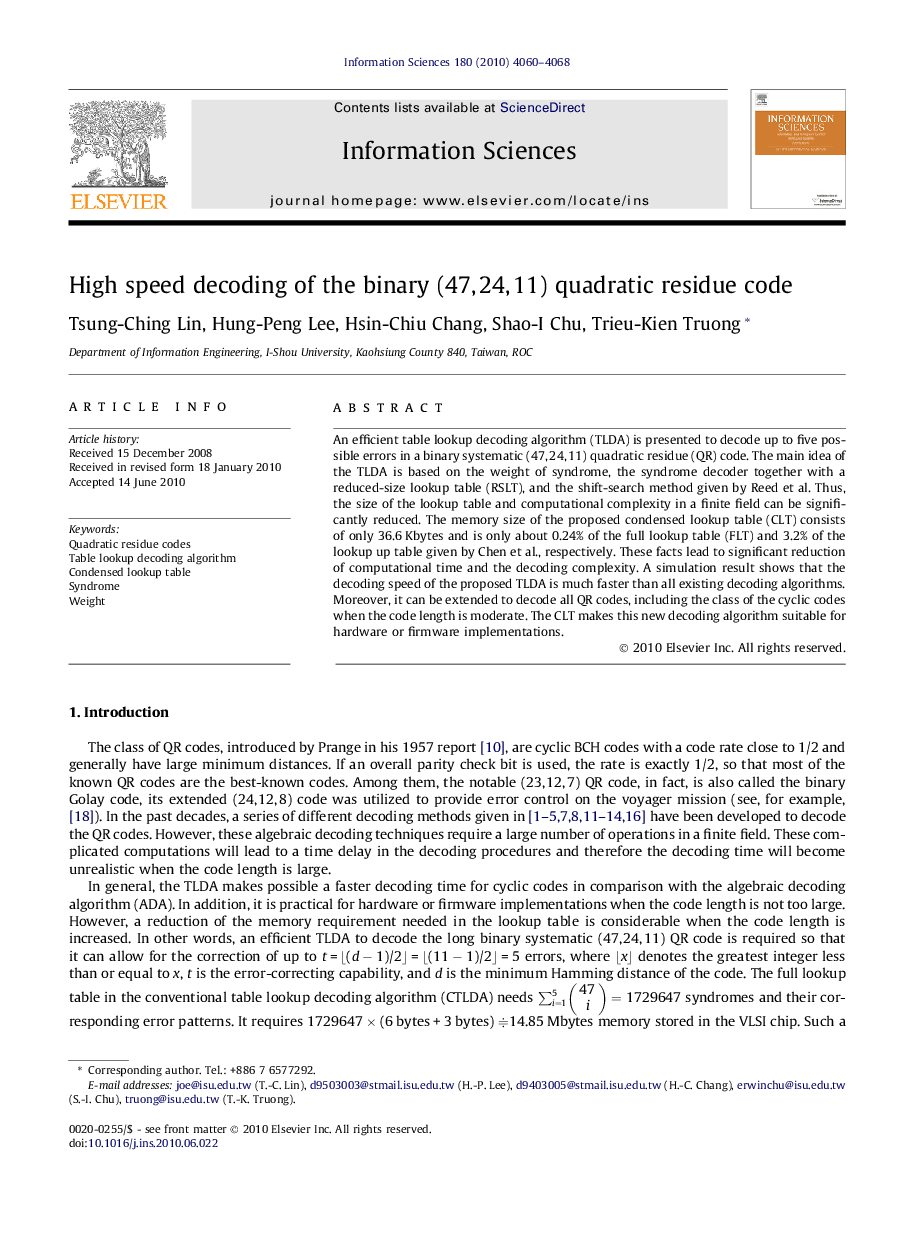| Article ID | Journal | Published Year | Pages | File Type |
|---|---|---|---|---|
| 395079 | Information Sciences | 2010 | 9 Pages |
An efficient table lookup decoding algorithm (TLDA) is presented to decode up to five possible errors in a binary systematic (47, 24, 11) quadratic residue (QR) code. The main idea of the TLDA is based on the weight of syndrome, the syndrome decoder together with a reduced-size lookup table (RSLT), and the shift-search method given by Reed et al. Thus, the size of the lookup table and computational complexity in a finite field can be significantly reduced. The memory size of the proposed condensed lookup table (CLT) consists of only 36.6 Kbytes and is only about 0.24% of the full lookup table (FLT) and 3.2% of the lookup up table given by Chen et al., respectively. These facts lead to significant reduction of computational time and the decoding complexity. A simulation result shows that the decoding speed of the proposed TLDA is much faster than all existing decoding algorithms. Moreover, it can be extended to decode all QR codes, including the class of the cyclic codes when the code length is moderate. The CLT makes this new decoding algorithm suitable for hardware or firmware implementations.
